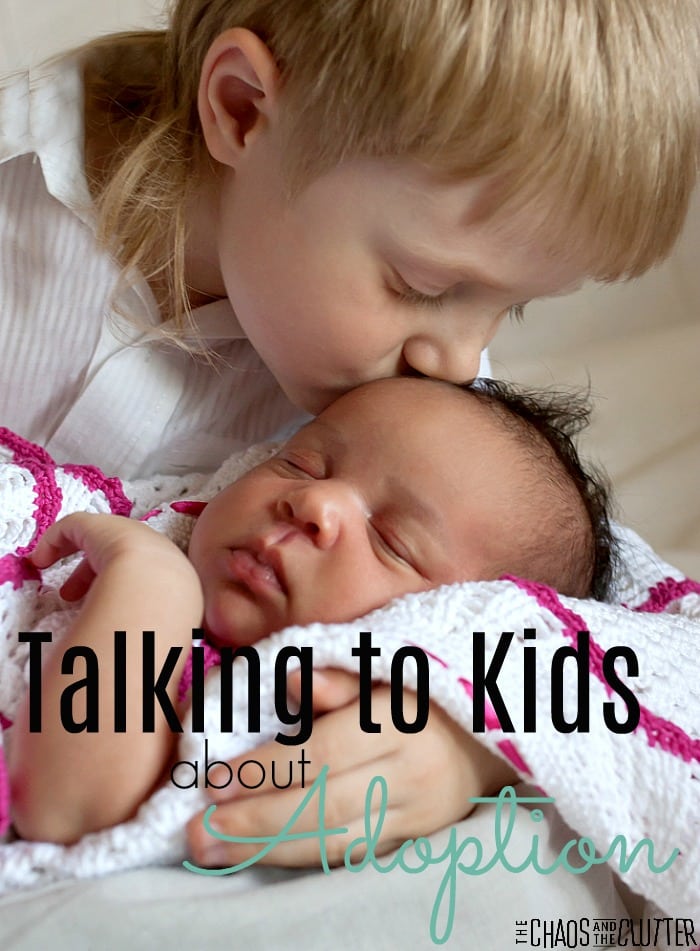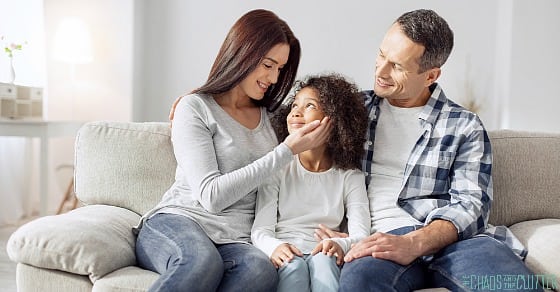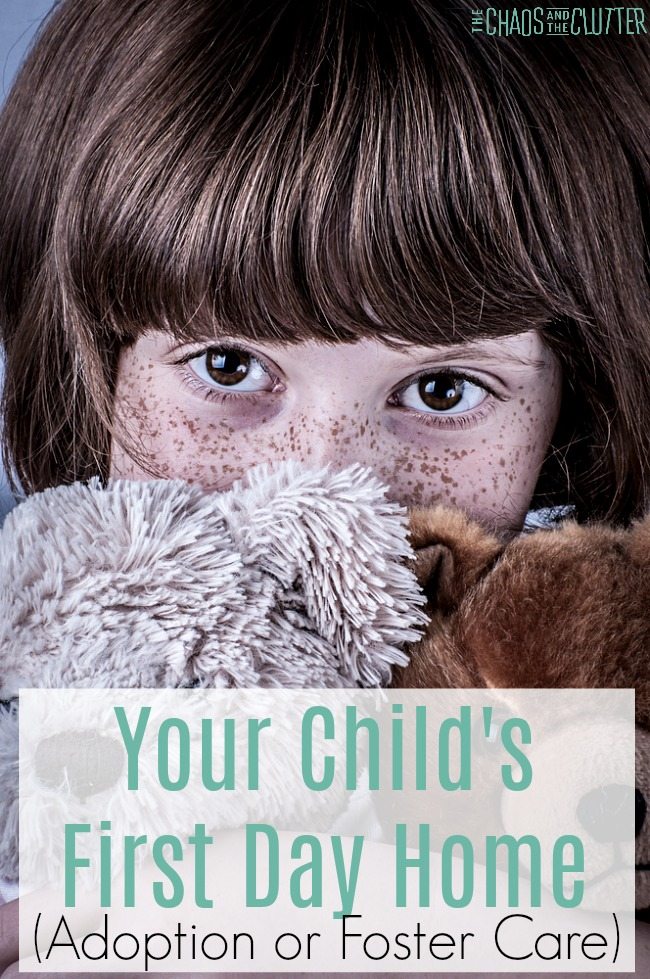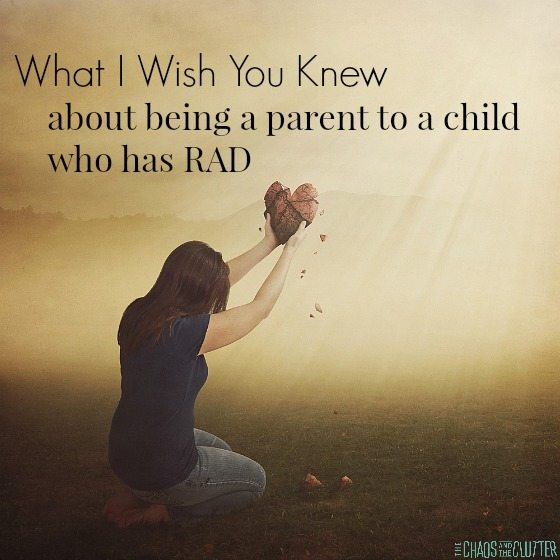No two adoption stories are alike. Therefore, there is not a one-size-fits-all answer when it comes to talking to kids about adoption. Many years ago, I was doing dishes in the kitchen and overheard my girls playing with dolls in the next room. “I’ll be the tummy mommy and you be the other mommy.” I smiled at the sink. I was glad to know that the girls felt so comfortable talking about adoption that the theme showed up even in their playtime.
“I’ll be the tummy mommy and you be the other mommy.” I smiled at the sink. I was glad to know that the girls felt so comfortable talking about adoption that the theme showed up even in their playtime.
I also recall a moment of listening to one of my daughters correct a friend of hers who repeatedly questioned her about her “real” mom. Her replies made me laugh a little.
My daughter: “My real mom is in the kitchen.”
Her friend: “No, I mean your REAL mom.”
My daughter: “My real mom is in the kitchen. She takes care of me every day. It doesn’t get more real than her. I think you’re trying to ask about my birth mom.”
That little interaction is exactly why this first point is so important:
1. All children should be told about adoption…not just those children who are adopted! Educating kids about adoption including common adoption terminology ensures that there will be more understanding and compassion and less chance of kids saying ignorant things to other kids on the playground. Adoptive parents and their children need you to educate your child so that they don’t have to!
Take the time to learn respectful adoption terms. This will ensure that you will choose sensitive language when having the conversation with your child. Here’s a short rundown:
- Never say “real” or “your own” when referring to an adoptive parent’s biological children. If you feel the need to differentiate, “biological” and “adopted” are the terms you can use.
- Some people prefer the terminology of “first family” instead of “birth family”.
- “First moms” (or “birth moms”) “place their child for adoption” or “make an adoption plan”. They do not “give their child away”.
- Children are not “bought”. There are sometimes fees associated with paperwork, orphanage care, lawyers, travel, and medical expenses in an adoption, but the children themselves are not bought. They are priceless.
- Every adoption is unique and so are the circumstances.
- Stay away from asking adoptees and adoptive parents questions like these.
2. Talking about adoption should not wait until your child reaches a certain age. Adoption is a topic that should be introduced from birth or from the time your child is in your home. Waiting until they are older to first introduce adoption can lead to feelings of betrayal. Many of my adult friends remember well the day they learned their adoption “secret”. Because it was kept from them until a certain point, they felt that it must be something to be ashamed of.
3. Use age appropriate language and give age appropriate information. There are many cute books that can help introduce the topic of adoption to young children. As children get older, it becomes appropriate to share more specific details about their adoption story. When our oldest daughter was younger, her favourite bedtime story was the one where we would tell her about the night she first came to us. She loved to hear about how excited we were! As she got older, more details were added to the story and we began talking about some of the harder aspects of her history. An important factor to keep in mind is that emotional maturity is more critical to consider than a child’s actual calendar age when deciding what should be shared when.
4. Tell the truth. You obviously don’t want to share every difficult detail with a three year old, but continue to provide factual answers to your child’s questions so that by the time they are an adult, they are the owners of their whole story. This also includes providing them with any paper documentation you may have when they are at an age that they are ready to have it.
Telling the truth is easy if your child has a relatively easy story to tell or at least what is considered to be a typical adoption story, but telling the truth may seem impossible if your child’s history is sad or awful or complicated. It is still better to have them hear it from you, the person who loves them and whom they trust most than to find out some other way in the future and feel betrayed by you or feel that you were ashamed of their story.
5. Acknowledge the loss. Adoption is beautiful or at least, it can be beautiful, but adoption is also full of loss even in the best of circumstances. Acknowledge those losses with your child and let them know that it is okay to grieve them.
6. Talk about birth family/first family reunion. When you feel that your child is ready, broach the subject of how you would feel if they were to seek out their first family someday. Children feel a fierce sense of loyalty to both sets of parents and don’t want to upset you, so they may not be willing to bring up their desire or thoughts in regards to someday searching for their first family. If you let them know that you do not feel threatened by this, they will feel more free to include you in this part of their journey. If you do not think that them seeking out their first family would be best, share with them what your reasons are.
7. Let your child know that it is okay to ask you questions. Answer them in an age appropriate, yet truthful way.
8. Follow your child’s lead. When you create an environment where talking about adoption is as natural as asking someone to pass the peanut butter, you open the doors to allowing your child control over this part of their history. Some children want to talk often about it and others would rather not think about it very much. There are also stages of development that naturally bring about more questions about identity and belonging. Adoption may take on more of a focus during those times. 
9. Practise their public story with them. Adoption is one of those things that seems to invite a lot of questions. When their friends begin to find out that they are adopted (for trans-racially adopted kids, this happens immediately), your child will face questions. Practising with them what they are comfortable sharing and what is appropriate for them to share with close friends, acquaintances and strangers (having three sets of scripts – one for each of these groups) will allow your child to avoid the discomfort and anxiety that comes with the questions.
10. Don’t be afraid to call on a professional. If your child seems to be stuck in their grieving or having a lot of issues surrounding their adoption that seem to go beyond what you are comfortable with, it is very appropriate to seek the help of a counsellor. It is best to find one who has experience with working with clients who are adopted.
I hope these tips help you in talking to kids about adoption and in realizing the importance of such discussions.
You may also be interested in reading:
Your Child’s First Day Home (Adoption or Foster Care)
What I Wish You Knew About Parenting a Child with Reactive Attachment Disorder